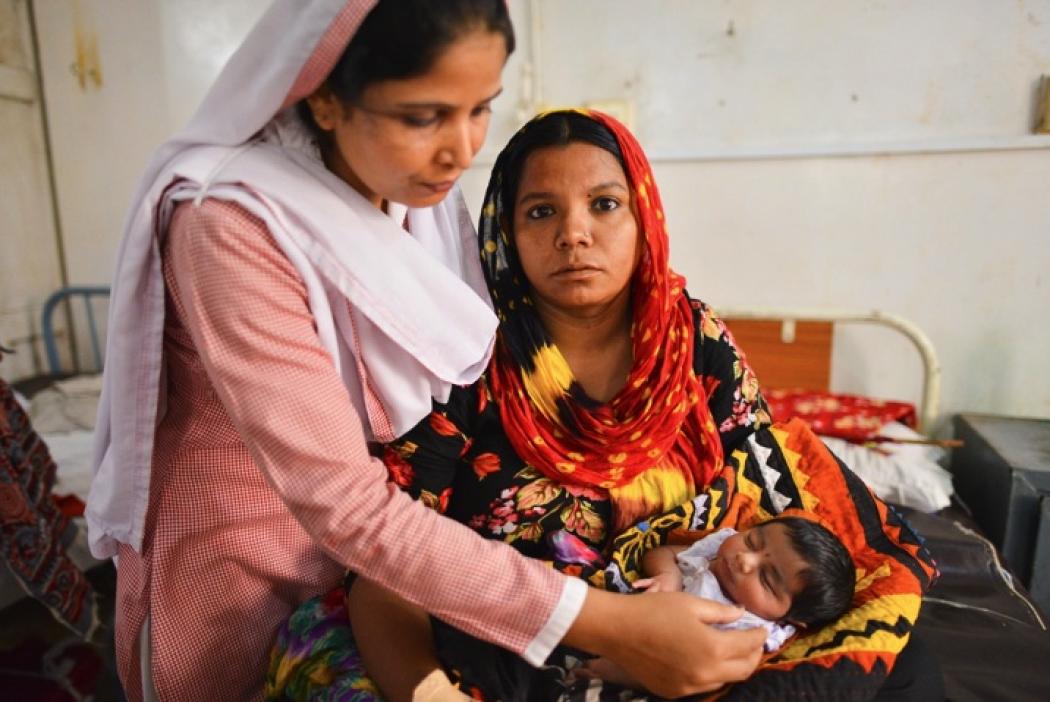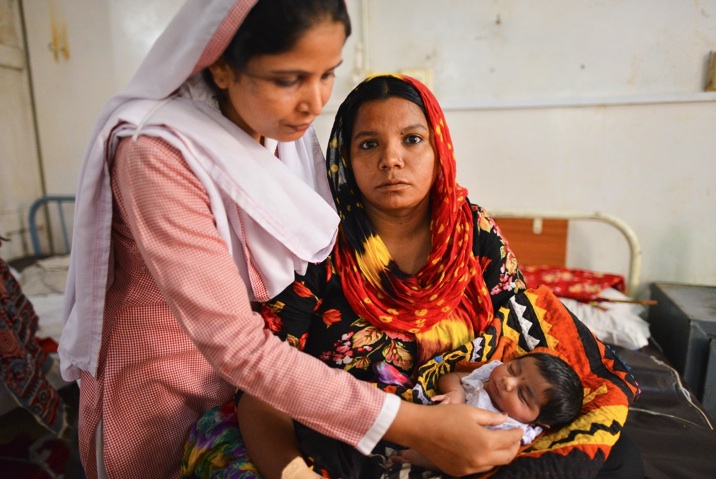Planning a Family by Choice, Not by Chance

By Dr. Leslie Mancuso, President and CEO, Jhpiego

Photo by MNCH Services Project Pakistan
Initiation of family planning immediately after birth is both efficient for health systems and easier for women since few women in low-resource settings are able to return to a facility for further care.
Every year, more than 180 million babies are born around the world. The birth of a child is a joyous occasion to be cherished and celebrated, but it is also a chance for new mothers to prioritize their health and plan for the future. As such, it represents a unique opportunity to reach the thousands of women who want to prevent an unintended pregnancy within the first 2 years after giving birth, but don’t have the time or ability to access family planning counseling or services. Proven to be one of the most effective tools available to reduce the deaths of women and children and improve health, postpartum family planning (PPFP) is also one of the most underutilized. The numbers speak for themselves:
- 225 million women in developing countries lack access to family planning information and services.
- Unmet need for family planning is highest for women in the postpartum period, during which 92% of new mothers want to space or limit future pregnancies but only 35% are using a method of family planning.
- Addressing the unmet need for family planning can avert more than 30% of maternal deaths.
The good news is that support and demand for family planning, especially in the postpartum period, are once again becoming a global movement. Starting with the groundbreaking London Summit on Family Planning in 2012 and Statement for Collective Action for Postpartum Family Planning, and continuing with the recent Accelerating Access to PPFP Global Meeting in Chiang Mai, Thailand and upcoming International Family Planning Conference
From more than 40 years of experience working at the intersection of maternal and newborn health and family planning, Jhpiego understands the importance of integrating services for both. A no-missed-opportunities approach recognizes that every service contact—prenatal visits, childbirth, postnatal care, child immunization—presents an opportunity to counsel women on their family planning options. As technical leaders, we also know that comprehensive PPFP programming requires many types of frontline health workers being involved at each step along the prenatal-to-postpartum continuum of care. In low-resource settings, midwives and nurses are often the only point of care for women during pregnancy and childbirth. That’s why ensuring that they are properly trained, supported and empowered to provide PPFP counseling and services is so critically important.
In Pakistan, for example, women have an average of 3.8 children, and 37% of births occur within intervals of less than 24 months. Recognizing the impact PPFP can have on the health of a woman, Jhpiego, in collaboration with Pakistan provincial departments of health and with support from the David and Lucile Packard Foundation, is working to increase access to family planning counseling and services for women across Punjab Province. To date, 42,814 pregnant women and 24,552 postpartum women have been counselled on their family planning options and 13,209 accepted a method. In addition, the project has built the capacity of 52 Master Trainers, 550 Lady Health Visitors—a position similar to a skilled birth attendant—and 103 community health workers to provide PPFP counselling and services.
The lessons learned under the Pakistan program are currently being applied in other programs in the country, including a large Maternal and Child Integrated Program (MCHIP) associate award funded by the United States Agency for International Development that seeks to expand the range of methods offered to postpartum women and test the acceptability of male providers offering implants. This program offers an opportunity to learn about the challenges of delivering these services at a much larger scale.
We are seeing similar success with PPFP in India, which has made tremendous investments in improving nursing education and scaling up access to PPFP services through a number of partnerships with the Government at national and state levels and with support generous donors such as the Bill and Melinda Gates Foundation. These successes are not unique to Asia, as demonstrated in Burkina Faso, where a dynamic team of family planning trainers leveraged the support of the Ministry of Health and a modest commitment from Jhpiego at the 2012 London Summit to provide women in Burkina Faso with access to PPFP and exceeded all expectations.
Utilizing the skills of frontline health workers and building on the pillars of successful family planning programming, government support, collaboration, capacity building, technical continuity and integration, we can become the catalyst for bold action on behalf of millions of women. Now is the time to act, to strengthen the health workforce in this critical health care need, invest heavily in PPFP programs, ensure appropriate supplies of contraceptive methods and say a resounding yes to women who want to plan their family by choice, not by chance. Please join us and share your commitment to making sure a broad range of contraceptive options are available to women after giving birth no matter where she lives.Sign here!
